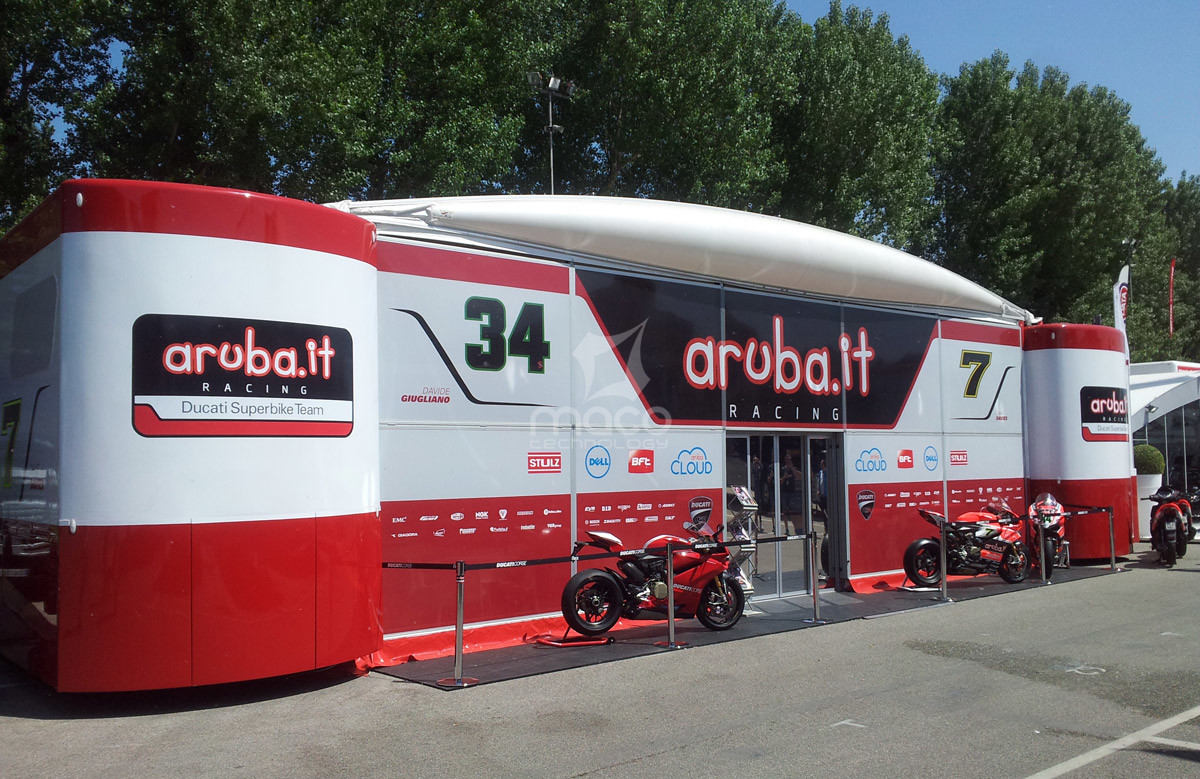
L’articolo, pubblicato sulla rivista Sustainability, presenta i risultati di una collaborazione tra l’Università degli Studi dell’Aquila e Maco Technology che ha analizzato le prestazioni energetiche di strutture tessili temporanee utilizzate per eventi itineranti gli hospitality per il Motorsport, i negozi a tempo, i negozi temporanei, i pop-up store e i temporary store.
Lo studio ha analizzato il padiglione Ducati SBK, progettato e realizzato da Maco Technology, tramite avanzati software di simulazione dinamica in grado di simulare le condizioni ambientali che possono presentarsi durante le varie tappe del campionato di gare motociclistiche Super Bike.
Le strutture temporanee sono tradizionalmente estremamente energivore per via delle ridotte prestazioni termiche dell’involucro tessile. E’ quindi essenziale mettere a punto soluzioni in grado di rispondere in modo efficiente al variare delle condizioni climatiche.
Il padiglione Tensairity Ducati SBK è stato modellato tramite il software Design Builder sono stati analizzate diverse alternative per ottimizzare le prestazioni energetiche durante la stagione estiva.
Grazie alla metodologia adottata, è stato possibile mettere a punto soluzioni tecnologiche in grado di ottenere risparmi energetici significativi mantenendo allo stesso tempo i livelli di confort necessari nonostante la ridotta inerzia termica della copertura tessile.
DE VITA, M., BECCARELLI, P., LAURINI, E. and DE BERARDINIS, P., 2018. Performance analyses of temporary membrane structures: Energy saving and CO2 reduction through dynamic simulations of textile envelopes, Sustainability (Switzerland), 10(7).
Abstract:
The aim of this research, carried out in collaboration with Maco Technology Inc., was toanalyse the energy performance of temporary textile structures that are often used to host itinerantevents. This paper illustrates the dynamic simulations carried on the Ducati Pavilion, designedby Maco Technology, which hosted Ducati staff during the different stages of the Superbike WorldChampionship. Specific aspects relating to the structural/constructive system of the project were alsoanalysed. The theme of energy saving and carbon reduction is of great importance in temporary anditinerant structures and environmental sustainability in relation to the materials used, storage, re-use,mode of transport and ability to respond efficiently to the climatic conditions of the installation sitesis an important aspect. The Ducati Pavilion was modelled and analysed from an energy point ofview using Design Builder software. Ways of improving performance were analysed under summerconditions. The paper focuses on the importance of optimizing the performance of textile envelopes:the methodology proposed allows visible savings in terms of energy consumption and achieves goodlevels of environmental comfort in temporary buildings with low thermal mass structure.
